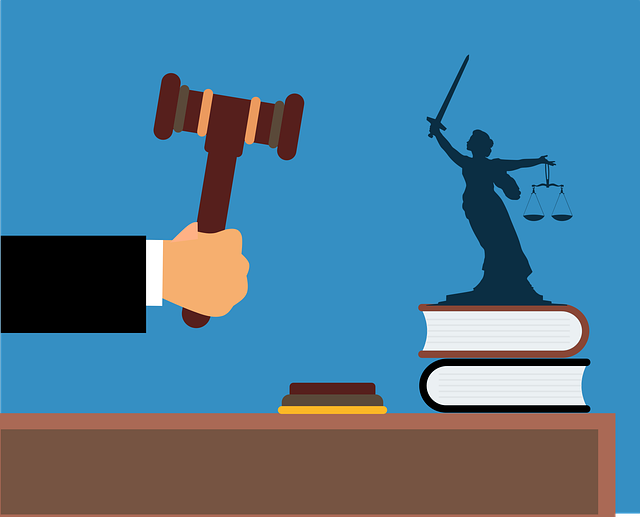How Do Sentencing Guidelines Affect Penalties?
Sentencing guidelines play a pivotal role in securities class action cases, shaping penalties for corporate fraud and misconduct. They provide a structured framework for judges to determine fines, restitution, and other consequences, balancing deterrence and proportionality based on factors like misconduct's nature, investor impact, and mitigating circumstances. These guidelines significantly influence the severity of punishment, can lead to charge dismissals or substantial financial repercussions, and send a strong message to potential white-collar criminals, fostering accountability within the financial sector. Understanding these implications is vital for both plaintiffs' and defendants' attorneys, ensuring effective navigation of complex securities cases and advocating for justice.
Securities class actions are a critical component of maintaining fairness and transparency in financial markets. This comprehensive overview delves into the intricacies of these legal proceedings, with a focus on understanding how sentencing guidelines play a pivotal role in penalizing wrongdoers. By examining the impact and implications of these guidelines, we explore how they shape settlement outcomes, ensuring accountability and providing justice for affected investors. Learn more about the dynamics between sentencing guidelines and securities class action penalties.
- Understanding Securities Class Actions: A Comprehensive Overview
- The Role of Sentencing Guidelines in Penalizing Wrongdoers
- Impact and Implications: How Guidelines Shape Settlement Outcomes
Understanding Securities Class Actions: A Comprehensive Overview

Securities class actions are a significant legal mechanism for investors who have suffered losses due to corporate fraud or misconduct. These cases involve a group of individuals, typically shareholders, joining forces to hold accountable companies and individuals responsible for violating securities laws. Understanding how sentencing guidelines influence penalties is crucial in these high-stakes cases.
When a securities class action results in a successful verdict, the court’s sentencing guidelines play a pivotal role in determining the consequences. These guidelines ensure fairness and consistency by setting parameters for fines, restitution, and other penalties. In winning challenging defense verdicts, plaintiffs’ attorneys often argue for stringent penalties to deter future misconduct. Conversely, defendants may advocate for leniency, especially if they claim cooperative behavior or lack of malicious intent. The court’s interpretation of the guidelines and application in each case can lead to either a complete dismissal of all charges or substantial financial repercussions for the defendant entities.
The Role of Sentencing Guidelines in Penalizing Wrongdoers

Sentencing guidelines play a pivotal role in ensuring that justice is served in securities class action cases. These guidelines act as a framework for judges to impose penalties on wrongdoers, striking a balance between deterrence and proportionality. By setting clear parameters for sentencing, they aim to achieve extraordinary results—not only in terms of financial compensation but also in sending a strong message to potential perpetrators within the white-collar defense sphere.
The impact of these guidelines is significant, as they can determine the severity of punishment for corporate fraud, insider trading, and other securities-related offenses. They take into account various factors, including the nature and extent of the misconduct, its effect on investors, and any mitigating or aggravating circumstances. This structured approach helps maintain the integrity of the financial markets and encourages companies and individuals to uphold their responsibilities, fostering a sense of accountability in both the philanthropic and political communities.
Impact and Implications: How Guidelines Shape Settlement Outcomes

The impact and implications of sentencing guidelines on securities class action settlements cannot be overstated. These guidelines, designed to promote fairness and consistency in criminal justice, play a pivotal role in shaping the penalties imposed on corporations and individuals convicted of white-collar and economic crimes. By establishing clear parameters for sentencing, they offer both a framework for judges and a measure of predictability for defendants, ensuring that penalties are commensurate with the severity of the offense.
An unprecedented track record of successful prosecutions and settlements has emerged due to these guidelines. They encourage proactive compliance and internal investigations, as companies strive to avoid severe penalties by implementing robust corporate governance practices. For general criminal defense attorneys, understanding these guidelines is essential to navigating complex securities cases and securing favorable outcomes for their clients. This dynamic ensures that justice is not only served but also promotes a culture of accountability in the financial sector.
Securities class actions play a pivotal role in ensuring corporate accountability, with sentencing guidelines acting as a key arbiter of justice. These guidelines significantly influence penalty decisions by providing a structured framework for judges to consider the severity of misconduct and its impact on investors. By meticulously balancing deterrence, compensation, and proportionality, the guidelines shape settlement outcomes, ultimately fostering a fair and transparent financial market ecosystem. Understanding their intricacies is essential in navigating the complexities of securities litigation and upholding the rights of aggrieved investors.






